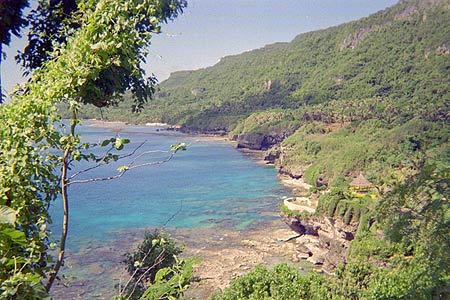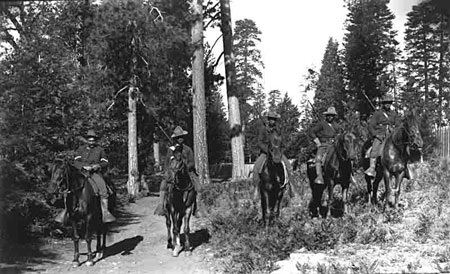The House of Representatives had a busy week last week, even beyond the machinations surrounding the Farm Bill. On Monday, June 17, the House passed a raft of environmental bills, including ones addressing land exchanges, creating a new national historic trail and analyzing forest sites for potential inclusion in the National Park System. Two of the more interesting bills are H.R. 674 and H.R. 520.

H.R. 674 is the Rota Cultural and Natural Resources Study Act, directing the Secretary of the Interior to examine the suitability of designating prehistoric, historic and limestone forest sites on the island of Rota, in the Commonwealth of the Northern Mariana Islands, which is located just east of the Philippines and north of Guam in the Pacific Ocean. As an insular area of the Commonwealth, Rota is recognized by archeologists as having the most numerous and intact prehistoric sites of any of the many islands in the Mariana Archipelago. The bill recognizes that beyond natural beauty, Rota also possesses a great deal of historical value, namely from the period of Japanese ownership from 1914 until 1945 due to its importance in World War II. A study on the island is to be completed once funds are available and the results will be reported back to the House and the Senate.
Also interesting from a historical standpoint is H.R. 520, known as the Buffalo Soldiers in the National Parks Study Act. This act, like the Rota Cultural and Natural Resources Study Act, addresses a topic of historical significance. It calls for the Secretary of the Interior to study potential alternatives to commemorating the role of Buffalo Soldiers during the beginning of the National Park System. And who are the Buffalo Soldiers? Glad you asked.

H.R. 520 identifies the main points of their history. While Bob Marley may have brought the buffalo soldier into popular culture, it isn’t until you really examine their full role that you can appreciate how vital they were in the Western United States at the end of the 19th and beginning of the 20th centuries. Originally based out of the Presidio, a former military base and current national park, the Buffalo Soldiers were African-American regiments, which included many former slaves, assigned to patrol the western frontier. They assisted with constructing roads and telegraph lines, but also fought in numerous campaigns against American Indians, including the Sioux, Cheyenne, Comanche and Apache. They also participated in the Spanish-American War. But one overlooked aspect to the history of the Buffalo Soldiers is their role as some of the first national park rangers in the Sequoia and Yosemite National Parks.
Assigned to the parks to help evict poachers and timber thieves, they also served as firefighters and park police before the National Park Service was established. Working in the parks at the turn of the century, the soldiers also assisted with trails, roads and other park infrastructure. Some of their many noteworthy accomplishments included constructing the first usable road into the Giant Forest and completing the first trail to the top of Mt. Whitney (the tallest peak in the lower 48 states) in Sequoia National Park. In Yosemite, they built an arboretum close to the Merced River’s south fork.
H.R. 520 is designed to study the most effective ways to raise awareness of the Buffalo Soldiers’ roles in the early years of our national parks and may include establishing a national historical trail to commemorate their journey from the Presidio to the Sequoia and Yosemite National Parks; identifying places that could be recognized in the National Register of Historic Places; and creating educational opportunities for visitors to these parks.
While Congress has not gained a reputation for expediency this term, there are still some noteworthy and important bills being passed. Highlighting those that worked to protect our national parks is certainly worth celebrating, and the Buffalo Soldiers are a key part of that history.